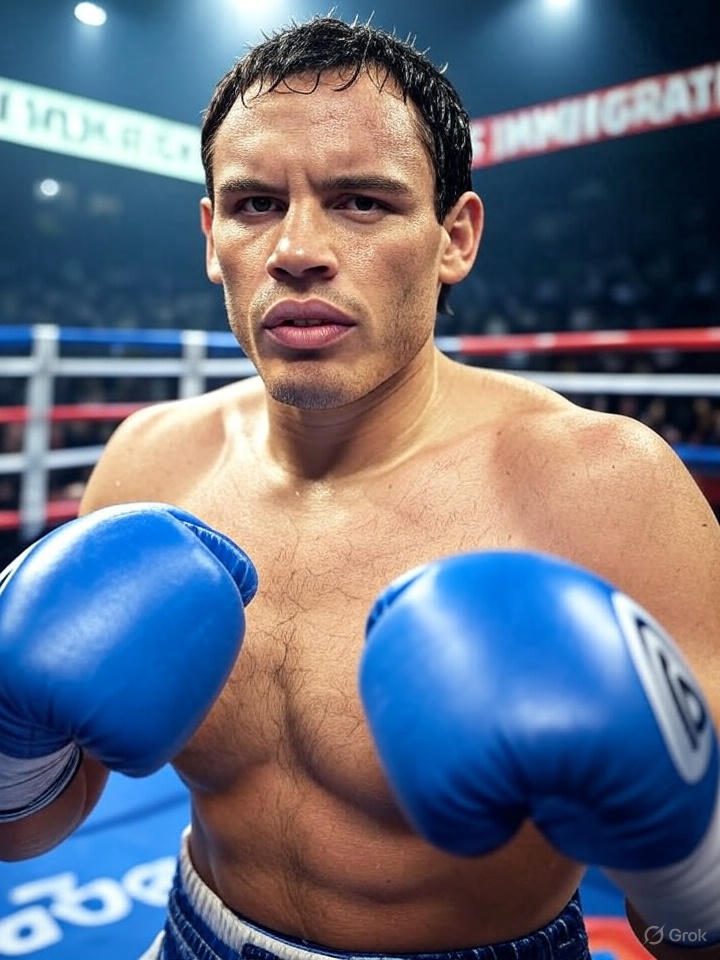Julio César Chávez Jr., faces arrest by U.S. immigration.
Julio César Chávez Jr.’s Arrest by U.S. Immigration Officials: 7 Critical Facts You Must Know

📰 Julio César Chávez Jr.’s Arrest by U.S. Immigration Officials Explained
On July 2, 2025, Julio César Chávez Jr.’s arrest by U.S. immigration officials sent shockwaves across the boxing world and social media. The 38-year-old former middleweight champion was reportedly detained in Los Angeles by U.S. Immigration and Customs Enforcement (ICE) due to alleged immigration status violations.
While the exact reasons for Chávez Jr.’s arrest have not been fully disclosed, speculation is rampant that he failed to maintain proper documentation for his extended stay in the U.S., leading to an unexpected ICE raid.https://mysportinfo.com/mysportinfo-com-child-fell-overboard-disney-cruise/
🚨 Why Julio César Chávez Jr.’s Arrest Is Making Headlines
This is not just a celebrity scandal—Julio César Chávez Jr.’s arrest by U.S. immigration officials raises powerful questions about:
- 🇲🇽 Immigration enforcement on high-profile non-citizens
- 🧾 Documentation scrutiny for public figures
- 🧍 Athlete vulnerability amid changing U.S. immigration policy
While Chávez Jr. has faced controversy before, including suspensions for banned substances and erratic behavior, this is his first known legal run-in with federal immigration enforcement.
📜 Background: Who is Julio César Chávez Jr.?
The son of Mexican boxing legend Julio César Chávez Sr., Chávez Jr. rose to fame by winning the WBC Middleweight title in 2011. Known for his powerful punches and volatile career, he has drawn attention both inside and outside the ring.
However, over the last decade, Chávez Jr. has had more media presence due to personal controversies than professional victories.
🧊 ICE Crackdowns in 2025: Is This Just the Beginning?
Image Prompt: “ICE agents with arrest warrant outside a residential building at night, with spotlight and tension.”
In 2025, ICE has ramped up its operations, detaining thousands of immigrants—including many without criminal records. According to NPR, over 52% of current detainees have no prior criminal conviction, sparking widespread criticism.
Julio César Chávez Jr.’s arrest by U.S. immigration officials fits into a wider narrative of increasing immigration scrutiny—even among non-criminal, high-profile individuals.
💣 Public Backlash and Celebrity Reactions
Image Prompt: “Twitter and Instagram feed with trending hashtags #FreeChavezJr and #ICEoutofControl.”
Soon after the news broke, fans and fellow celebrities responded. Popular figures like Canelo Álvarez and Oscar De La Hoya posted cryptic messages supporting Chávez Jr.
The Mexican-American community expressed outrage, with activists labeling the arrest a “politically motivated show of force.”
🛡️ What Are His Legal Options Now?
Table of Contents
Julio César Chávez Jr.’s arrest by U.S. immigration officials may lead to:
- Temporary detention in an ICE facility
- A formal removal hearing in immigration court
- Possible deportation to Mexico
- The option to post bond or apply for adjustment of status
Legal experts suggest that high-profile detainees often fare better due to media attention, legal representation, and public support.
⚖️ How Is the Military Involved?
Yes, surprisingly, the U.S. military has become more entangled with immigration enforcement. According to CBS News, Marines have been deployed to assist ICE operations in several states, including Florida.
A press release from USNORTHCOM confirmed that this partnership is aimed at “logistics and transportation,” but critics argue that it increases the militarization of immigration enforcement.
🤯 The Shocking Implications for Other Athletes
Image Prompt: “Collage of international athletes holding passports, appearing concerned, with U.S. flag in the background.”
Julio César Chávez Jr.’s arrest by U.S. immigration officials may set a disturbing precedent. If a world-famous athlete can be arrested without warning, what does this mean for undocumented or improperly documented athletes in the U.S.?
This incident has already triggered concern among sports agents, immigration lawyers, and sponsors.
📢 What the Public Can Learn from Chávez Jr.’s Case
This isn’t just about a boxer—it’s a wake-up call. The average person, regardless of fame, may face similar consequences if they:
- Overstay their visa
- Fail to maintain proper immigration status
- Get involved in legal violations or prior warnings
Julio César Chávez Jr.’s arrest by U.S. immigration officials is a reminder that immigration laws apply universally—and that even the powerful can be vulnerable.
🔚 Final Thoughts: A Cautionary Tale with Global Ripples
Image Prompt: “Silhouette of Chávez Jr. behind a chain-link fence, symbolizing detention and uncertainty.”
While the full story of Julio César Chávez Jr.’s arrest by U.S. immigration officials is still unfolding, one thing is clear: this event is more than a headline—it’s a powerful lesson in how the intersection of fame, law, and policy can play out in unexpected ways.
Whether he will be deported or acquitted remains uncertain. But what is certain is the public conversation his arrest has reignited.





Leave a Reply